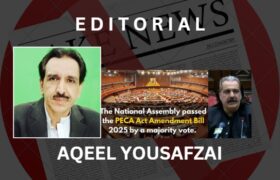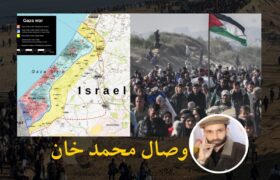Empowering minorities through government policies and programs
Salman Ahmad
Pakistan, with Muslims being in majority, is a multi-religion and multi-racial country. Abiding by the 1973 Constitution of the republic and Islamic principles, the state and its institutions are bound to safeguard the rights of its religious minorities. Article 26 of the constitution states that there must be no discrimination against any citizen on the basis of religion, gender, caste, race and residence etc. Article 36 of this constitution exclusively ensures protection of the legitimate rights and interests of minorities through the state, including their proper representations in the provincial and federal services.
Keeping the negative propaganda regarding the suppression of minorities in the country aside; Pakistan as a state has always prioritized the protection of the rights of its religious minorities and made it possible for them to freely practice their religion. Major minority groups in Pakistan make up to four per cent of the population with Christians at 1.59%, Hindus at 1.60%, and Ismaili and Qadianis make 0.22 %. The state not only provides security to them but also facilitated a wholesome infrastructure for the religious practices of the minorities. Currently; there are 2652 Churches (one church per 864 Christians), 732Temples (one Temple per 2734 Hindus) and 167 Gurdwaras (one Gurdwara for 55 Sikhs) exist across the country.
Concrete steps have been taken for the empowerment of minorities in Pakistan. They are provided with equal rights to education, health, the right to vote and opportunities in jobs and businesses. Minority members are working in senior positions in the bureaucracy and in the Army. Ten seats in the national assembly, four seats in the senate of Pakistan and several other seats in all provincial assemblies of Pakistan have also been reserved for the minorities. These steps also include the re-constitution of The National Commission for Minorities (NCM) where members of minority communities have surpassed the Muslims’. The federal government, in addition to the open merit, has specified a five percent job quota for minorities in government services. On the directions of NCM, the implementation status of the job quota is to be strictly observed by provincial governments, federal ministries, divisions, FPSC, and Islamabad, however, due to lack of education etc, it is not completely filled. The objective behind these enormous steps is empowering minorities and creating an enabling environment for them within the boundaries of the republic.Moreover; Pakistan’s parliament and judiciary remain vanguards in securing the rights of minorities and ascertaining equal opportunities for them. Especially; the judiciary is leading the war on any reported violations of HR vis-à-vis minorities. Attorney General for Pakistan’s (AGP) office has taken initiative by appointing minority lawyers as law officers in different provinces. It is being suggested that a SC Human Rights cell, should also be established to entertain applications regarding the grievances of minorities in the country.
The Supreme Court’s judgment on Article 20 righted many historical wrongs and has gone steps further in its implementation. The SC’s pro-minority attitude was a real-life example, as when Chief Justice Jawad S. Khawaja protected a Hindu temple from extremists in the Karak district of Khyber Pakhtunkhwa. Criminal cases were registered against 123 miscreants involved in this incident. Former Chief justice Asif Saeed Khosa wrote a courageous concurrence acquitting Aasia Bibi, the accused of blasphemy, that infuriated the religious elements inside the country. Supreme Court also took notice of several incidents of forced conversion in the province of Sindh and the attack on the Christian community at Gojra, Punjab. Similarly, the ex-Chief Justice of Pakistan (CJP) also clubbed another issue that the Kalash tribe and Ismailies in Chitral were being coerced to convert to a different sect within Islam or to face death. The three-judge bench of the apex court led ex CJP Jilani considered all such issues and passed a 32-page landmark judgment on June 19, 2014.
Keeping its pace with the judiciary, the parliament of Pakistan has also shown enormous commitment to securing minority rights. On 8 Dec 2020, KP Assembly passed a bill for the creation of Endowment Funds for Minorities. Minority students’ scholarship rates have doubled w.e.f 25 Mar 2014. The provision of vocational education for children of Hindus and Sikhs at Government expenses has also been approved by ETPB on 15 Jan 2021. The sindh government has passed the Sindh Hindu Marriage Act 2016 (amended in 2018), to facilitate the Hindu community to solemnize their marriages in accordance with the Sindh Hindu marriage Rules, 2019.
At the Federal level, National Assembly has enacted the Hindu Marriage Act 2017 which extended to the whole of Pakistan except Sindh. Blasphemy laws are applied indiscriminately. Since 2005, 55 individuals convicted of blasphemy offences which include 46 Muslims, 7 Christians, one Hindu, and one Qadiani (Muslims 84%, minorities 16 %). Minorities convicted of blasphemy are given fair trials and rights of appeal in higher Judiciary. The acquittal of Asia Bibi, Shagufta Kausar and Shafqat Emanuel etc. by higher Judiciary are significant cases in point.
In the education sector, a Single National Curriculum (SNC) will be introduced at the primary level in all educational institutions of Pakistan in which five minorities’ religions will be taught in the school. SNC is completely free of all elements of intolerance and hate speech. This curriculum is to be implemented in all public and private schools and Deeni Madaris across Pakistan.
Apart from the Interfaith Harmony Policy at the federal level, the Ministry of Religious Affairs has taken a number of initiatives to promote interfaith harmony including the official declaration and celebration of minorities days, to recognize the contribution of religious minorities towards nation-building. Ten events of minority religions are being celebrated at the official level in Pakistan to promote understanding and harmony among all segments of society. These festivals include Christmas and Easter for Christians, Holi and Diwali for Hindus, Biasakhi and Birthday of Guru Nanak for Sikhs, Nauroze for Zoroastrians, Eid-e-Ridvan for Bahi’s, Festival of Lights for Buddhist community and Chelum Jhust for Kalash community.
Pakistan has also taken significant steps for the promotion of religious tourism and promoting religious harmony. Opening the historical Grudawara Kartarpur Corridor, Shewala Teja Mandir and Gurdwara Choa Sahib (Jehlum), holding Baba Guru Nanak 550th birthday celebrations, hosting more than 60000 Yatrees from across the world and filling up Amer Kund (Holy Water) at Katas Raj are some the many initiatives Pakistan has taken for promoting religious tourism and religious harmony.
The Government of Pakistan is committed to implementing the constitution of Pakistan in its true spirit and in the light of Islamic principles and the international declaration of human rights to protect the rights and lives of minorities in Pakistan.




